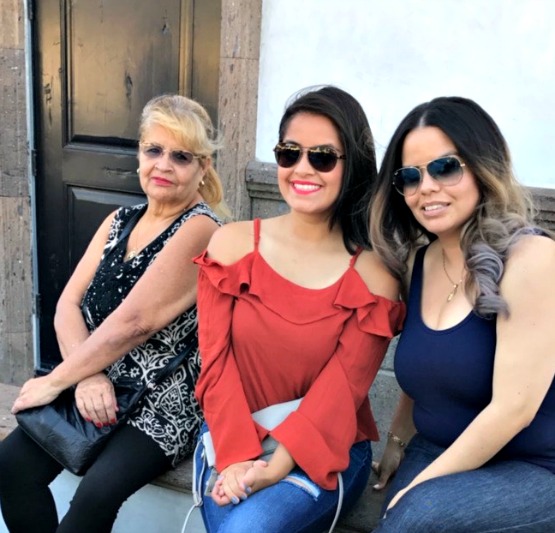I grew up in East Los Angeles and the youngest of four children and was the first to graduate from a four-year university. I received my bachelor’s degree from the University of California in Santa Barbara in 2013, and I am part of the 25% who went to and through college after graduating from a high school in Los Angeles. I am literally a statistic.
My single mother worked in sweatshops ever since I could remember, she was bringing home the unfinished work. An immigrant from Nayarit, Mexico, she came to this country in hopes for a better future not knowing the language she navigated and worked and earned just enough money to get by. Besides her working full time and being both mother and father to my siblings and me, the language was definitely a barrier for her when it came to getting involved in my education.
She always reminded me, “hechale ganas para que no tengas que trabajar como burro.” She knew education would open up many doors for me. Of course, she was right.
I now realize that although my mother wasn’t involved, it didn’t mean that she didn’t care. There were real barriers for her. Not only was she the breadwinner, head of our household, and always working, but language was also a huge barrier. Not all my teachers in elementary school spoke or understood Spanish. I remember my 17 year old sister at the time stepped in and attended my parent conferences and back to school nights in her place. At the end of the day, I had people in my corner. My sisters were involved and my mother always pushed me to achieve to the best of my potential.
I have worked for the public charter school network, Knowledge is Power Program (KIPP), for the past four years. First as an Office Manager at KIPP LA then as a Civic Engagement Associate and now a Community Engagement Manager at KIPP Bay Area Schools. I see my mother in many of the parents I am fortunate enough to serve. Many of them are native speakers in Spanish and Vietnamese and work one, two or even up to three jobs. But I have seen the amazing things that can happen on a campus when schools and families become partners in educating our children.
In my line of work, one of my major goals is to provide others with the tools and the resources that they need to advocate for high quality education in underserved communities. Besides the importance of choice, I am personally a big advocate for families in schools. When schools consider families as true partners and not just bodies at meetings for the sole purpose of being compliant with district or state regulations, true education reform begins to happen whether it is at a traditional public school or at a public charter school.
I want to make sure that families don’t see language as a barrier or feel that as if they fail their children when they are not able to attend a back to school night. I want to make sure that the schools I serve are communities where parents like my mom can show up, speak up, and be involved in their child’s education.
Melissa Salgado
Latest posts by Melissa Salgado (see all)
- Fundadores Latinos Son Importantes: Joel Portillo Comienza Una Nueva Escuela KIPP Preparatoria en el Área de la Bahía - November 7, 2019
- Latino Founders Are Important: Joel Portillo Starts New KIPP Bay Area High School - October 23, 2019
- Cómo Construir una Cultura de Colaboración Entre Padres y Escuelas - August 13, 2019
- How to Build a Collaborative Culture Between Parents and Schools - August 8, 2019
- Seleccionando la Escuela Preparatoria Correcta: Consejos de Una Consejera de Colocación, de Escuela Preparatoria - July 11, 2019

